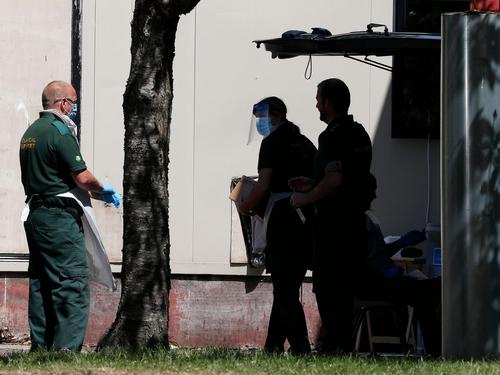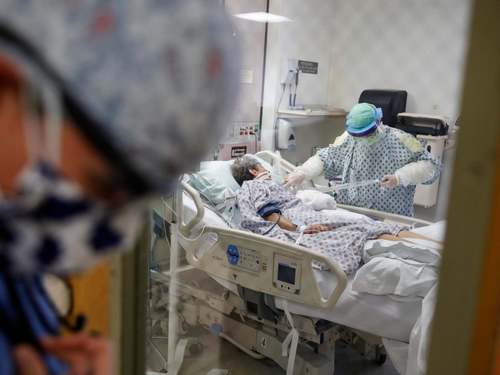The DHSC also said in the 24-hour period up to 9am on 4 July, 624 new infections were confirmed. Overall, a total of 7,932,582 tests have been processed while 284,900 people in the UK have tested positive for Covid-19.
On Friday, chief medical officer Chris Whitty said there is no “perfect” way to reopen Britain’s economy after the coronavirus lockdown – as Boris Johnson urged the public to “enjoy summer safely”.
The UK’s coronavirus death toll has risen by 67 in 24 hours to 44,198, according to the latest government figures.
The Department of Health and Social Care (DHSC) said 44,198 people had now died in hospitals, care homes and the wider community after testing positive for the disease in the UK, as of 5pm on Friday 3 July.
This tally only accounts for those who have tested positive for Covid-19. The latest Office for National Statistics figures, which includes all fatalities in which Covid-19 is on the death certificate, suggests the true toll is above 55,000.
Concerns have been raised that the reopening of pubs, restaurants, cinemas and hairdressers across England could lead to a second wave of cases.
Some pubs started serving from 6am on Saturday, sparking concerns of over-indulgence, while a number of hairdressers were reported to have opened at the stroke of midnight.

Professor Chris Whitty said the government was walking a “narrow path”.
“Either side of the path that we are on, there are risks,” he said from Downing Street. “And we are going to have health problems, and economic problems, for sure,” he said.
The chief medical officer added: “There is no perfect time, there is no perfect, exact way of doing it.
Officials will be closely monitoring the daily rate of cases and deaths amid fears of a resurgence of the virus which could lead to tough restrictions being reimposed.
No hype, just the advice and analysis you need
Earlier this week, Leicester was placed into the first local lockdown following a surge in Covid-19 cases.
Public Health England’s latest regional data showed the city had the country’s highest number of cases per 100,000 people (with 140.2 cases per 100,000), followed by Bradford (69.4 cases per 100,000) and Barnsley (54.7 cases per 100,000).
Professor Neil Ferguson, a former scientific adviser to the government, said on Wednesday that more localised lockdowns in the UK were “inevitable” as he warned the country was still in the early stages of the pandemic.
“We’re relaxing lockdown rules and that means contacts in the populations are going up,” Professor Ferguson told BBC Radio 4’s Today programme.
“That’s a very variable process from place to place. That means in some places where there are too many contacts, we’ll get clusters of transmissions.
“What’s critically important is we detect those early and adopt the measures necessary to locally reduce transmissions again.”



